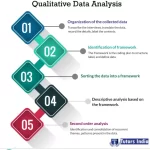Meta-Analysis: A Quantitative Approach To Research Integration
Meta-analysis is the statistical analysis and integration of multiple studies with similar concepts. The basic principle of meta-analysis is the presence of a common truth behind all conceptually similar studies which has been measured with a certain degree of error within each study. Therefore, the objective of meta-analysis will be to arrive at a pooled estimate closest to the common truth using the principles of statistics.
Quantitative research deals with numbers and stats, the integration of such researches with similar concepts in order to improve statistical power of estimation is called meta-analysis.
Meta-analysis will result in a weighted average that is a close estimate to the true value accounting in various factors. The difference lies in how the weights are allocated and the manner in which uncertainty is compared around the point estimate generated. Meta-analysis, in short, provides the point estimate of the unknown common truth.

So meta-analysis is the analysis of analyses. In addition to statistical integration of various conceptually similar researches meta-analysis can contrast results of different studies, identify patterns among study results, the source of disagreement, and other interesting relationships as a result of the comparison between multiple studies.
In order to do meta-analysis, the investigator has to make some choices that will affect the results. They will have to rationalize their search for studies, select studies based on a set of objectives, deal with incomplete data and analyze the data, account for publication bias. But in the end, the aggregation of information leads to higher statistical power and robust point estimate.
Since meta-analysis deals with integration of results of studies that are complete, it is a secondary data source. Meta-analysis is often a component of systematic review.
Conceptually, meta-analysis uses a statistical approach to combine the results from multiple studies in order to increase power over individual studies. It helps improve the estimates and size of the effect, and to resolve uncertainty when there’s a conflict between reports.
Advantages of Meta-Analysis:
- A statistical overview of two or more systematic reviews, it produces a weighted average of the results with several advantages.
- The precision and accuracy of estimates improves as more data is used. This also increases the statistical power to detect an effect.
- Inconsistencies across studies are quantified and analyzed.
- Hypothesis testing applied on summary analysis.
- Moderator inclusion explains variation between studies.
- Publication bias can be spotted and investigated.
Applications of Meta-Analysis:
Meta-analysis combines the effect sizes of a set of studies using a weighted average and hence can identify if a study shows more variation than what is expected. Weakness in the methodology of individual studies can thus be corrected statistically.
Pharmaceutical companies use meta-analysis to combine data of individual participants from different research centres and asses the model’s generalizability or aggregate existing prediction models, developing and validating different prediction models.
Meta-analysis is required in the process of drug approval by regulatory agencies. It also has its application is host of other fields like medicine, education, psychology, criminal justice, sociology, social psychology, finance and economics, political science, etc.
It is used to abridge the body of evidence for a specific question by researchers in publications. Researchers use it to identify answered questions and unanswered questions, which likely outcome among which population before conducting a new study.
Links, References, Related Posts
– Choosing The Right Data Collection Methods For A Successful Thesis
– Why Tutors India for Econometric and Financial Statistical Analysis Support Services
– The Importance Of Having Biostatisticians On Every Clinical Research
– Why Tutors India for Statistical Support Services – Our Statistics Mentors

 Next Post
Next Post